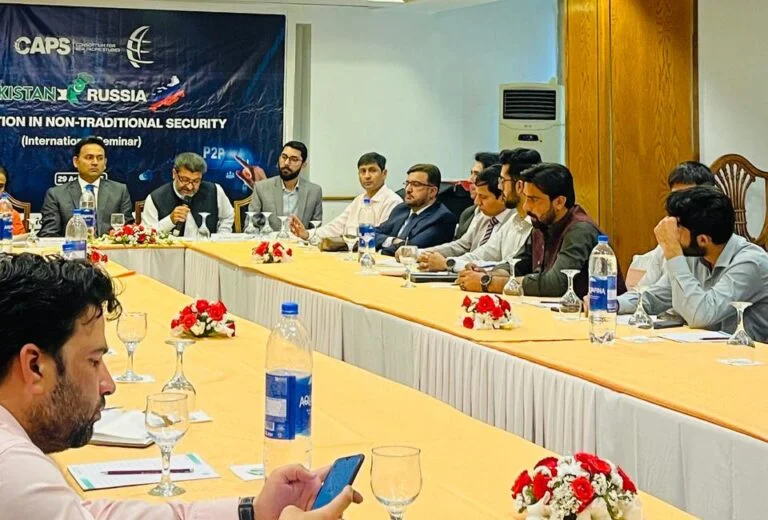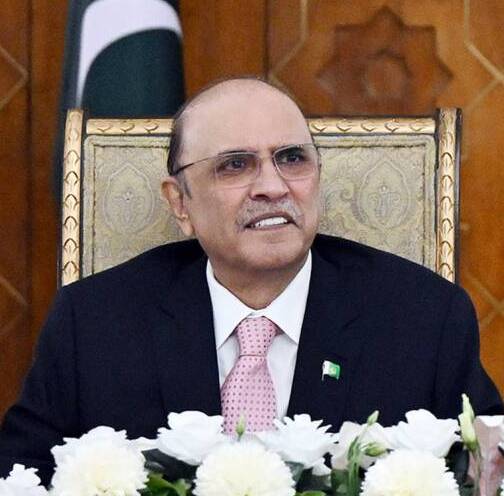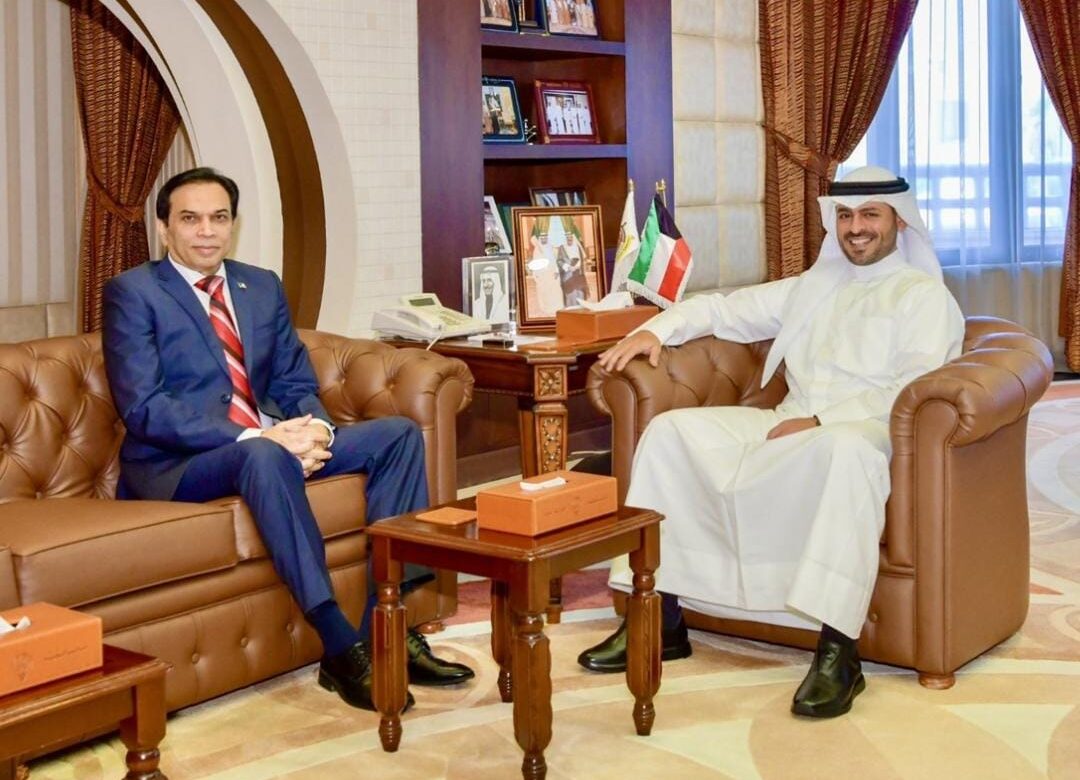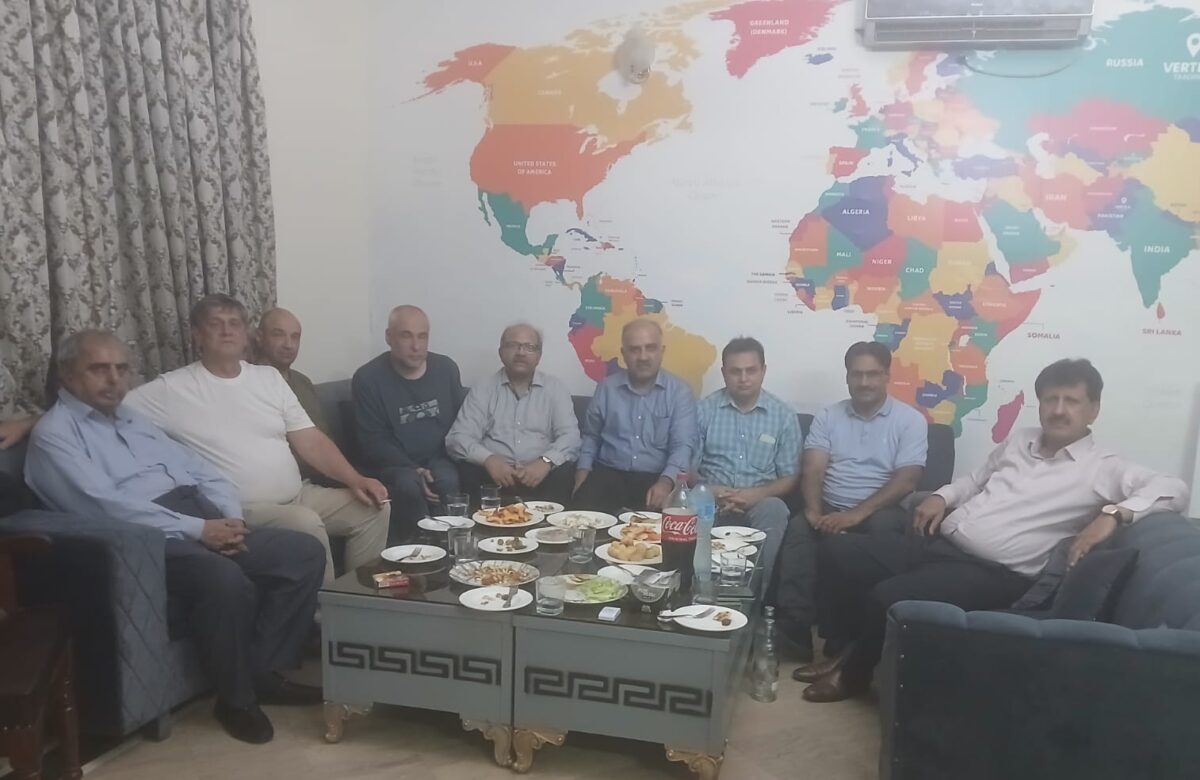
Pakistan, Russia Advance Strategic Cooperation Through Non-Traditional Security Dialogue
- Diplomatic News
- April 29, 2025
- No Comment

Pakistan, Russia Advance Strategic Cooperation Through Non-Traditional Security Dialogue
In a significant move towards diversifying diplomatic ties, Pakistan and Russia have agreed to deepen cooperation in areas beyond traditional security, focusing instead on shared global concerns such as water management, migration, climate change, and technological development.
This understanding was reached during an international seminar titled “Pakistan-Russia Cooperation in Non-Traditional Security,” hosted by the Consortium for Asia-Pacific Studies (CAPS) in Islamabad. The seminar brought together scholars, policymakers, and analysts from both countries to discuss evolving bilateral dynamics in a multipolar world.
Seminar Highlights
Dr. Roksolana Zigon, a geopolitical expert from Russia, strongly condemned the recent Indian stance on the Indus Waters Treaty, calling it a breach of international norms. She proposed that Russia could mediate between Pakistan and India, similar to its historical role during the Tashkent Agreement. Dr. Zigon also advocated for technology-based solutions to address Pakistan’s water crisis and promote climate resilience through bilateral cooperation.
Dr. Ilsur, a representative from Kazan University, stressed the untapped potential in Pakistan-Russia cultural ties. He identified three main pillars for enhanced engagement:
- Strengthening political dialogue
- Expanding trade relations
- Promoting cultural exchange programs
He emphasized that cultural diplomacy and shared historical values form the foundation for long-term cooperation.
Dr. Shabbir Ahmed, Director of the CARS Area Study Centre, University of Peshawar, discussed opportunities for Pakistani labor exports to Russia. He noted that recent changes in Russian immigration policy open new doors for skilled workers. “We are natural partners in a shifting global landscape,” he remarked.
Taimur Fahad, Associate Researcher at the Institute of Strategic Studies Islamabad (ISSI), spoke about the transformative impact of the International North-South Transport Corridor (INSTC). He noted that the initiative offers Pakistan and Russia a strategic route for trade diversification. He also advocated for:
- Strengthening institutional communication
- Facilitating public-private partnerships
- Encouraging barter trade to counter geopolitical volatility
Gleb Makarevich, Senior Research Fellow at the Primakov Center, Russian Academy of Sciences, analyzed the status of academic collaboration. He pointed out bureaucratic challenges and low public awareness as major barriers but expressed hope for future progress in education and research exchanges.
Commitment to Regional Academic Infrastructure
In her concluding remarks, Ambassador Naela Chohan praised the seminar’s role in promoting dialogue on modern security challenges. She stressed the need for establishing Central Asian regional study centers to enhance academic and strategic cooperation across Eurasia.
Earlier, Dr. Muhammad Shoaib, Senior Vice President of CAPS, opened the session by highlighting the necessity of addressing non-traditional threats in a rapidly evolving geopolitical environment.







